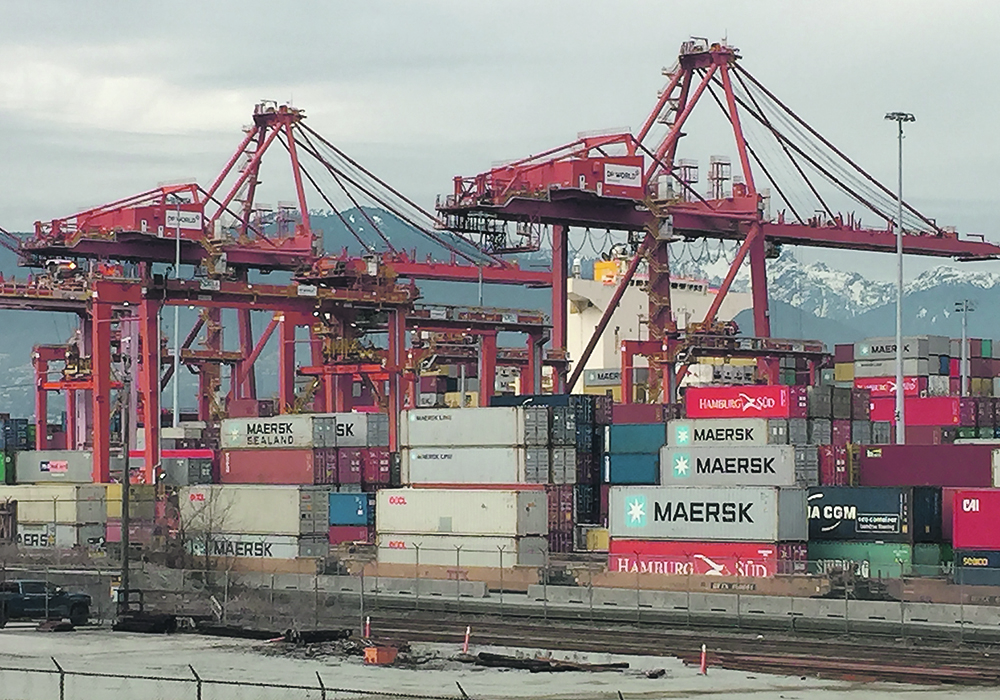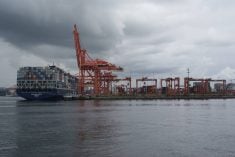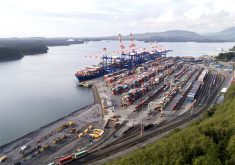A tentative agreement has been reached between the British Columbia Maritime Employers Association and the International Longshore & Warehouse Union.
The four-year deal is subject to ratification by both parties. Details of the agreement are not being released.
“The BCMEA recognizes and regrets the significant impact this labour disruption has had on the economy, businesses, workers, customers and ultimately, all Canadians,” it said in a press release.
Read Also

Canadian Food Inspection Agency extends chronic wasting disease control program consultation deadline
Date extended for consultation period of changes to CWD program
“We must collectively work together to not only restore cargo operations as quickly and safely as possible, but to also rebuild the reputation of Canada’s largest gateway and ensure supply chain stability and resilience for the future.”
The 13-day strike disrupted containerized shipments from the Port of Vancouver and the Port of Prince Rupert.
Brian Innes, executive director of Soy Canada, said the new agreement is a relief.
A lot of Canada’s pulses, soybeans, special crops and meat products are shipped by container.
“We’re thrilled that (the strike) is coming to an end and we hope that as a country we focus on our asset, which is being a reliable supplier,” he said.
“It was yet another supply chain disruption that hurt our ability to export and had real impacts on our farmers and exporters.”
The soybean sector ships about $35 million of product in containers every two weeks, product that didn’t move for those 13 days.
“Some of that we may hope to make up,” said Innes.
“But the lasting impact is it’s one more issue in a long list of issues that our customers are looking at.”
He said Canada’s supply chain problems are forcing customers to diversify their network of suppliers.
Contact sean.pratt@producer.com
















